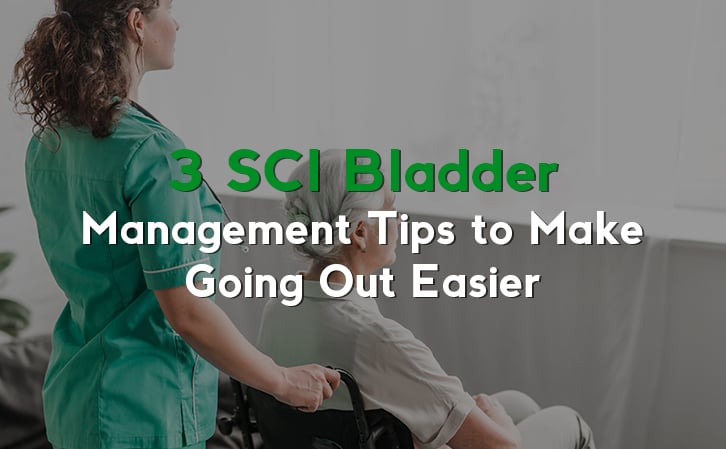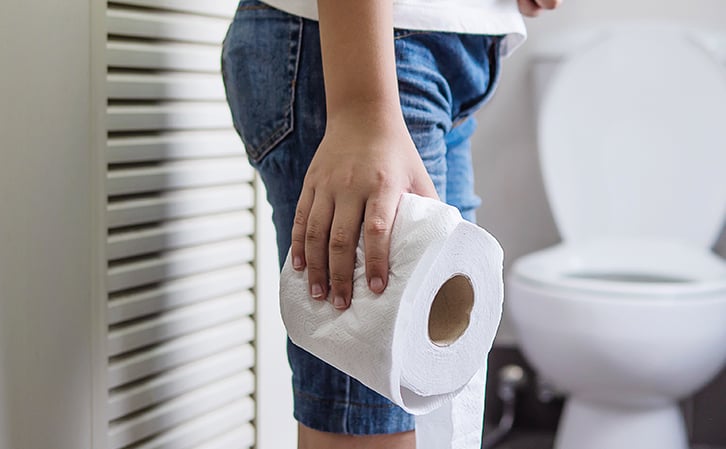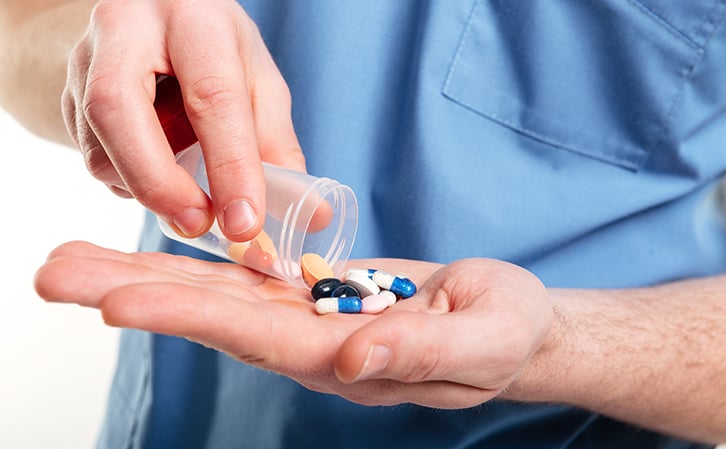MENU

- Spinal Cord Injury
- Brain Injury
- Treatment
- Legal Options
- Resources
- Local Resources
- Community
- Recognition
- Journal
- Get Legal Help


After over a year of staying at home, many people with spinal cord injuries are venturing out into the world. For people with spinal cord injuries, this is the time to refresh yourself on the best ways to manage your bladder when you’re not at home.

When you’re out, it’s important to be aware of the fluids you're drinking. Depending on the availability of an accessible bathroom, monitor what you’re drinking and how much. If you’re at a party and alcoholic drinks are being served, ask for a nonalcoholic alternative.
Try to avoid sugary drinks as well. This can irritate the bladder and cause discomfort or leg spasms if either of these is consumed too much. Instead, drink water, and if you want to avoid using the bathroom due to inaccessibility, do not drink a lot until you come home.

If you use an external catheter, make sure to bring additional catheters whenever you go out. If you have an indwelling catheter, make sure to bring any bladder supplies that may be needed in case your catheter has any hiccups, such as a syringe to irrigate a clogged catheter

Many people with SCI take oxybutynin regularly to prevent their bladder from involuntarily leaking. This pill is powerful and can greatly prevent bladder spasms.
A spinal cord injury may make emptying your bladder more complicated, but it doesn’t mean you can’t live an active life. Whenever you go out, make sure everything goes smoothly with some preparation and awareness of what you're drinking to ensure you have a great time.
About the Author
Spinal cord injuries are traumatic for patients and their families. They cause disruptive changes to every aspect of your life and there is a lot of new information to navigate and understand. Our experts have collected everything in one place to help you learn more about your injury, locate doctors and treatment centers, find financial support, and get assistance navigating your next move.
Sponsored by Tampa personal injury lawyers at Swope, Rodante P.A. a Florida law firm located at 1234 E 5th Ave, Tampa, FL 33605.
The information provided by SpinalCord.com is not a substitute for professional medical advice, diagnosis, or treatment, see Disclaimer Policy.